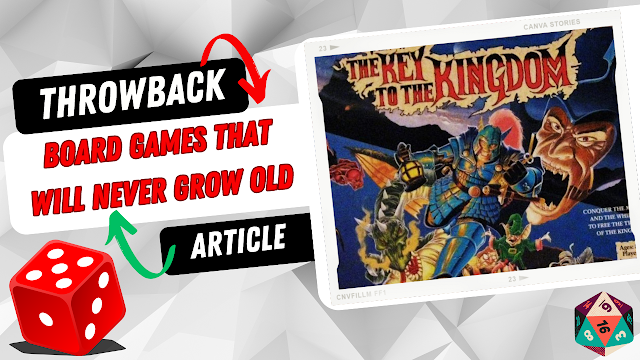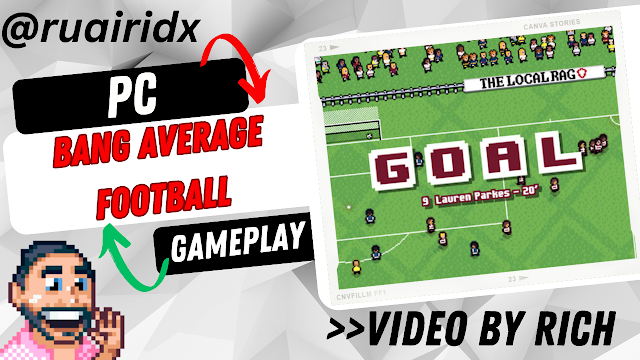The Secret Experiment created one of my games of the year for 2018, the wonderfully twisted, abstract and also BAFTA-winning Beckett.
Ever since playing the game, I’ve kept an eye on the company and the man behind it, Simon Meek. Keen to see what he came up with next.
To my surprise, it wasn’t a video game at all but an experimental book entitled Marnie Wakes which consists of 32 cards to be read or ‘performed’ in any order.
I’d never come across anything like this with the exception of William S Burroughs own experimental ‘Cut and Paste’ style of literature which eventually gave us Naked Lunch, and so I was intrigued.
My experience with Marnie Wakes was an interesting one, each of the 32 cards (which I shuffled before reading through in a random order) has snippets of information and thoughts from the life of a woman called Marnie, the lack of punctuation and fragmented layout, combined with the randomised reading order mean that your emotional approach to the narrative is moulded by the order in which you read, which will be specific to you.
I was quite surprised by the impact and variation that could be achieved by simply sorting the order around or reading in a different mood, with no punctuation a lot of the telegraphed emotions are removed which gives a more open interpretation of the content.
This was the first hint to me that The Secret Experiment had more in mind that just making great videogames.
I was lucky enough to be able to interview Simon Meeks and discuss with him not only his recent appointment as Designer in Residence at V&A Dundee but also his approach to making projects that don’t just feed a narrative but make the viewer / player a participant, questioning their own reactions to what is presented to them.
Simon Meek (The Secret Experiment) Interview
BR - When did you form The Secret Experiment and what was the original idea behind it?
SM - I set up The Secret Experiment in November 2013. I just left my role as creative lead at The Story Mechanics and wanted a vehicle by which I could channel some of the more out-there ideas I had around storytelling.
BR - Beckett was one of my games of the year in 2018 and I’d love to know more about the history and concept, what drove you to make such a specific game?
I wanted to make a statement piece - something that felt unashamedly uncompromised, something that delivered a story that you'd find in literature, theatre or independent cinema, but then also something more. Beckett isn't a game that wants you to like it. It's designed to make you feel off, to challenge you in different ways, to make you question what it is to exist.
In terms of what makes Beckett specific - this may have initially been born out of budgetary restraints. However, this resulted in the push to abstraction and the desire to use the player's imagination to fill in the blanks and make the story (their story) in their head. In this way, Beckett is quite a literary experience. But it's also a visceral experience - it's designed to feel 'made', real and a little uncomfortable.
The decision to make Beckett came about after an ultimately failed funding round to make a different game (Stranger), which I hope to return to at some point. However, it became apparent during that period that external investment was going to damage the product in terms of its artistic intent - as, ultimately, the games industry is fixated with serving up to the masses. There's not the same financial support mechanism that exists in film and theatre to help more left-field product reach their audiences. My studio The Secret Experiment has always been about taking risks, doing things differently, and - from a videogame point of view - making experiences for players who want more than just an adrenaline rush.
BR - I know that you are currently the inaugural Designer in Residence at V&A Dundee, what does that entail?
At V&A Dundee I have been given a studio and a 7-month tenure to explore and develop a new idea called Fragments of a Fictional Place. It's a multi-art form piece. Ultimately, the project is a series of character vignettes from a fictional town in the east of Scotland. I've researched and written these stories as flash fiction (less than 1000 words each) and I'm using my residency to explore unique ways of telling these stories. The outcomes are looking to be: as a physical fiction (an exhibition-performance hybrid space that is filled with narrative artefacts (objects) from the stories, presented as living slices of life); as a series of character assemblages (which are bold art pieces designed to be wall hung); a gallery piece called Windows into Places (which are basically an eclectic array of 'windows' hanging together in open space with photography projected onto their backs); a tabloid output of stories (which tie into all of the others); and a 100-page book called Honey and Milk Amongst Other Things (which is a monologue from one of the characters in the fictional town. I'm hoping to get this made as a short photo montage film also). It's worth mentioning that I'm conceiving all of this in a pre-visualised sense in Unity (games engine), so it exists digitally as well as physically. I quite like the idea of it being released as a digital collection/exhibition/experience at some point too.
BR - Have video games always been a part of your life? If so, which ones have had the most impact on you?
Yep - though with wife, three kids, a basset hound, and an insane amount of work commitments, it takes quite a game to capture my free time at the moment. This is one of the reasons I made Beckett - I wanted to create a high-value experience that would really hit hard, stick with you, and not take up more than a few hours of your time. I wanted people to have played Beckett and think 'f-k I'm glad I played that' whether they liked it or not.
IN terms of the games that had most impact: Mel Croucher's Deus Ex Machina (that one got into my dreams, but also it's multi-media approach was so brilliantly conceived); The Dark Eye (that's the Edgar Allan Poe, stop frame one); Freak Show and Bad Day on the Midway, both by The Residents; [those last three were Inscape] and Westwood's Bladerunner, which was just mind blowing - still one of my all-time favourites.
BR - Do you currently have any games in development or are you focusing your attention on other forms of media as in Marnie Wakes?
I have a couple of games in development yes! The two I'm pushing for are: Stranger (which is a multi-character thriller set in a small town that exists on a fault line to another dimension. It has a David Lynch feel to it, and it's characters and tone are pretty Brothers Quay); the second game is Nomadic Times (which is a collaboration with the brilliant Glasgow-based illustrator Sean Mulvenna. This is an adventure game based on an off-beat group of explorers who are venturing through a world of failed realities). The latter I'd say is most 'commercial', which means it has the best chance of being made at some point in the near future...
BR - What can we expect next from The Secret Experiment?
The Secret Experiment is very much the studio of my output right now - which, as you may have gathered, is fairly varied. I think I will put out a text-based digital narrative later this year, maybe not as much as a game as Beckett, but something that blends a few creative things in different ways. We've also got a couple of collaborations on the boil, which could be interesting.
BR - Are there any other Scottish developers or indie games that we should keep an eye on?
Jack King-Spooner's stuff looks really interesting - and raw. I haven't had the chance to play much though. There's also the quick, fast games of The Catamites (Stephen has recently moved to Glasgow). Also, keep an eye on Al Seed (he's a physical theatre-maker who's starting to get interested in making interactive narratives).
BR - Finally, what is your view of the industry at the moment and how do you feel you fit in, if at all?
It's a hard slog, to be honest. Beckett won awards, got hung on the wall at V&A Dundee, has had a widely positive (very positive in fact) reception, yet it's sales haven't approached anywhere near 5 figures. This means it’s hard to throw your energy into the next one unless someone has your back. I can write a play (Don't Push Daisy) which can be equally as subversive and experimental and that world (from an industry point of view_ are much more accommodating, and the process for me is much less intense. That said, I absolutely love games and love the potential of storytelling in them.... maybe it's just a few years too early for the sort of stuff I'm trying to do? Or, maybe the market is just so flooded right now it's just hard for your audience to find you. Think it's the latter, to be honest.
BR - Thank you for your time!
(Simon also mentioned post-interview that he is also in the process of writing a film, adapting an idea of his that was originally going to be a video game. Called ‘Them Other people’, it is about the social stigmatism of being physically deformed and one man’s desperate search for a truth that doesn’t exist.)
Simon can be reached on Twitter at:








No comments:
Post a Comment
Like what you see in the Games Freezer?
Why not tell us what you think with a few well-chosen comments? :)
Note: only a member of this blog may post a comment.